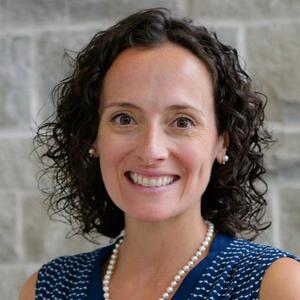
Jennifer Tomasone
Associate Professor
Physical Activity Promotion for Persons with Disabilities, Knowledge Translation
PhD (McMaster University)
MSc (Queen’s University)
BPHE (Queen’s University)
Undergraduate Courses
HLTH 102 – Personal Health and Wellness
HLTH 332 – Foundations for Understanding Disability
Disability and Physical Activity (DIPA) Certificate Director
Research Summary
Researchers generate extensive new evidence about how physical activity participation can enhance physical, mental and social well-being. However, the application of these findings to the “real-world” remains a considerable challenge. At the same time, community, non-government and government organizations have guidelines, programs and services that seek to promote physical activity to benefit individuals and societies; yet, programs may not achieve their full potential if they are not evidence- and theory-based and collaboratively developed, and organizations may not know if their programs are effective if they are not rigorously evaluated. Herein lies the focus of my research program: I engage in innovative and applied research projects that close the gap between physical activity participation research and practice. The goal of my research program is to optimize physical activity participation for Canadians of all abilities. My research program builds a foundation that researchers and practitioners can use to design, implement, and evaluate “real-world”, physical activity participation-enhancing interventions that have maximal impact. The outcomes of my work improve the design and delivery of effective interventions, and thus, have the potential to improve the health of Canadians.
The following three principles are the cornerstones of my research program:
- Full and effective participation encompasses both quantity and quality of participation. I strive to promote both quantity and quality of physical activity participation among the general population, as well as persons with disabilities and chronic disease. My work in this area has led to theoretical, methodological, and practical advances for understanding quality participation experiences in community-based exercise programs.
- Advancing both the science and practice of knowledge translation for physical activity participation. I bridge the physical activity participation “know-do” gap by drawing on knowledge translation science to inform and enhance knowledge translation practice. My work in this area has contributed to the dissemination and implementation of physical activity/24-Hour Movement Behaviour guidelines, programs and services in Canada.
- Integrated knowledge translation. By adopting an integrated knowledge translation approach, wherein knowledge users (i.e., members of the general public, health professionals, organizations) and researchers work together at all stages of the research process, it is possible to disseminate, implement and evaluate solution-based guidelines, programs, services, and interventions that are feasible from the individual- to societal-levels.
Graduate Student Opportunities
Opportunities exist for students who are interested in pursuing postgraduate training in knowledge translation for movement guidelines and/or physical activity promotion for persons with disabilities. Prospective students are encouraged to apply for funding from the Ontario Graduate Scholarship Program, the Canadian Institutes of Health Research, and other agencies that provide support for graduate students. Interested applicants should email Dr. Tomasone with a letter of interest along with a CV/resume and unofficial academic transcript.
Recent Publications
Jennifer Tomasone on Google Scholar
Links
Queen’s University Revved Up Lab